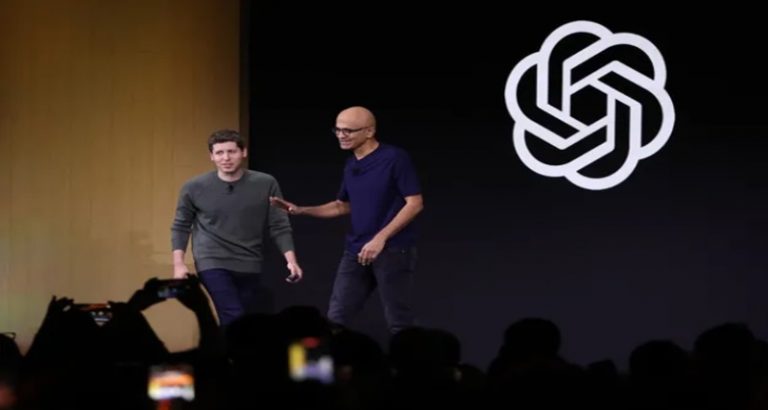
In a recent interview with The Advocate, OpenAI CEO Sam Altman sought to clarify common misunderstandings surrounding artificial intelligence (AI), particularly preaching that AI should be perceived as a tool rather than a sentient being.
Altman highlighted the prevalence of the misconception that AI resembles a creature, perpetuated by science fiction narratives.
“It’s a better movie plot if it’s a creature in a sci-fi movie, for example. If you use ChatGPT, it’s clearly a tool,” Altman explained, shedding light on the distinction. He emphasized that while AI presents risks, they manifest in different forms than often portrayed in fictional scenarios.
Tekedia Mini-MBA edition 16 (Feb 10 – May 3, 2025) opens registrations; register today for early bird discounts.
Tekedia AI in Business Masterclass opens registrations here.
Join Tekedia Capital Syndicate and invest in Africa’s finest startups here.
Altman acknowledged the evolving discourse surrounding AI, noting shifts from alarmist sentiments to a more nuanced understanding of its potential. However, this optimism is tempered by the recognition of AI’s inherent risks.
“It’s a bit less alarming than his earlier warnings,” remarked Altman, referencing previous statements where he speculated on the potentially catastrophic outcomes of AI development. Despite these concerns, Altman maintained an optimistic outlook, emphasizing the transformative power of AI as a tool to enhance human capabilities.
This conversation comes amidst a legal dispute between Altman and OpenAI co-founder Elon Musk, who recently filed a lawsuit against Altman alleging a deviation from OpenAI’s original nonprofit mission. Musk’s lawsuit argues that OpenAI’s partnership with Microsoft contradicts its initial commitment to leveraging AI for the betterment of humanity.
“OpenAI, Inc. has been transformed into a closed-source de facto subsidiary of the largest technology company in the world: Microsoft,” Musk’s legal team asserted, raising concerns over the prioritization of profit over societal benefit in OpenAI’s current direction.
Microsoft has thrown billions of dollars into OpenAI, investing in and incorporating the chatbot into its tech operations, including Bing – the web search engine it’s preparing to rival Google.
According to legal documents, OpenAI’s founding agreement mandated that its technological advancements be freely accessible to the public, a principle that Musk contends has been disregarded. Instead, he argues, OpenAI has transitioned into a profit-driven enterprise, particularly following its lucrative partnership with Microsoft.
This shift in focus, Musk argues, constitutes a stark betrayal of the original vision and principles upon which OpenAI was founded.
“OpenAI, once a beacon of hope for ethical AI development, has strayed from its noble mission,” Musk declared in a statement accompanying the legal filing. “I cannot stand idly by as an organization that I helped nurture and support veers off course, prioritizing profit over the betterment of humanity.”
In response to the lawsuit, Altman and OpenAI CSO Jason Kwon addressed staff in a memo quoted by the Wall Street Journal, refuting Musk’s claims and suggesting personal motivations behind the legal action. “We believe the claims in this suit may stem from Elon’s regrets about not being involved with the company today,” the memo stated, implying a possible discord between Musk and the current leadership of OpenAI.
The lawsuit underscores broader tensions within the AI community regarding the ethical implications of AI development and its alignment with societal interests. While Altman advocates for a pragmatic approach to AI, emphasizing its potential as a tool for positive impact, Musk’s lawsuit reflects deeper concerns about the commercialization and control of AI technologies by powerful entities like Microsoft.
Despite these challenges, Altman remains committed to advancing AI responsibly and fostering dialogue around its implications. He holds strong the perception of AI as a tool while dismissing the growing ‘misconception’ of the technology. He said, “the popular misconception of AI as sci-fi is very, very different from people who have been using it as a tool for a long time.”



